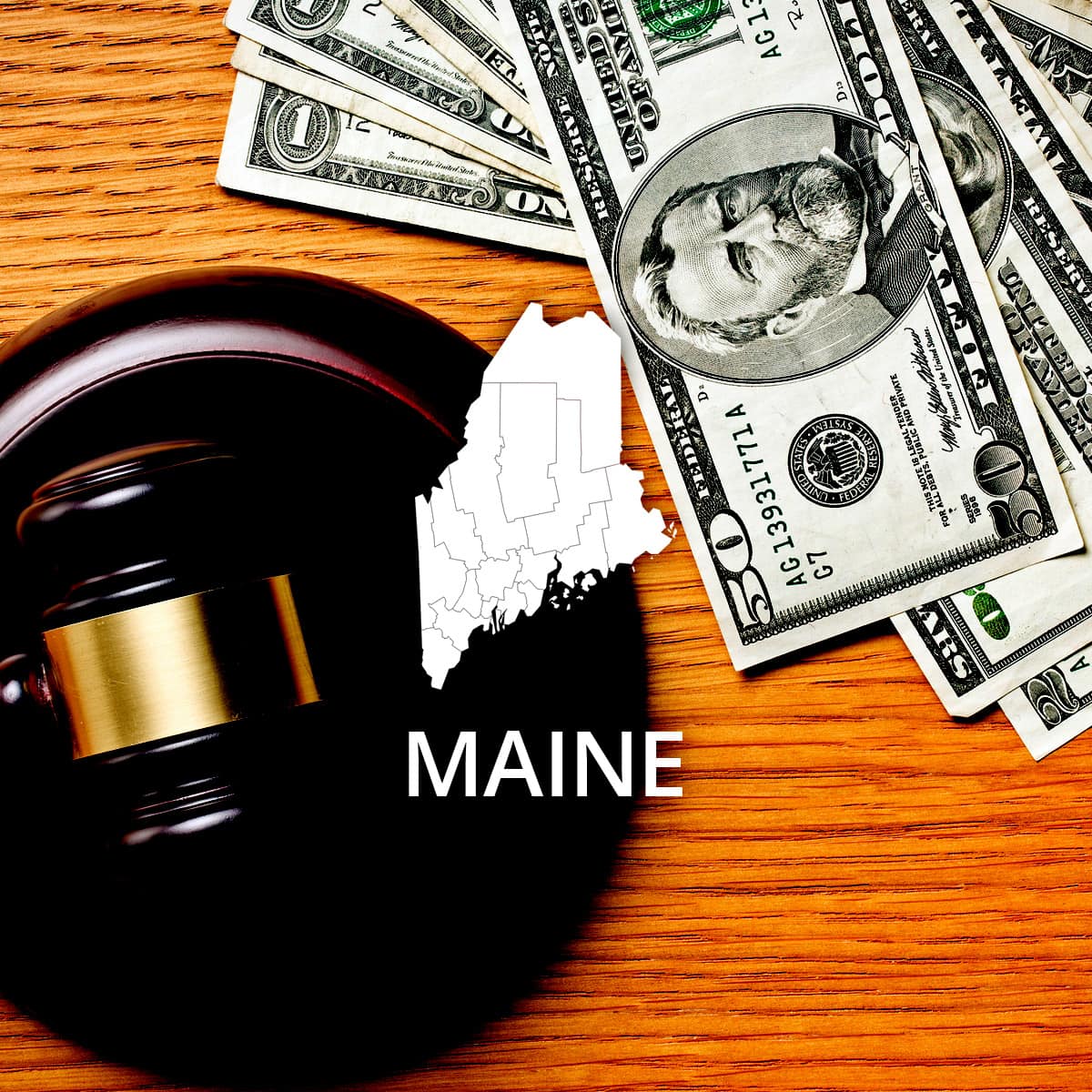 Multiple Bankruptcies: How Often You Can File One?
Multiple Bankruptcies: How Often You Can File One?
Table of Contents
 How to File Bankruptcy in Maine
How to File Bankruptcy in Maine
 There are four types of bankruptcy for which a petitioner may file in Maine. They are Chapter 7, Chapter 11, Chapter 12 and Chapter 13. Each is slightly different, but all must adhere to the federal regulations recently amended in the 2005 Bankruptcy Act. Petitioners are able to file for bankruptcy in one of the four District Courts of Maine.
There are four types of bankruptcy for which a petitioner may file in Maine. They are Chapter 7, Chapter 11, Chapter 12 and Chapter 13. Each is slightly different, but all must adhere to the federal regulations recently amended in the 2005 Bankruptcy Act. Petitioners are able to file for bankruptcy in one of the four District Courts of Maine.
 Filing Chapter 13, Chapter 7, and Other Types of Bankruptcy in Maine
Filing Chapter 13, Chapter 7, and Other Types of Bankruptcy in Maine
The first type of bankruptcy is Chapter 7, this is the choice for many individuals who need debt relief, but have limited income and fewer assets. Chapter 7 typically eliminates most debt from unsecure sources like credit card companies and medical bills. Even after a bankruptcy is complete, the petitioner will still be responsible for non-dischargeable debt, such as back taxes and child support.
Chapter 13 is another option, and attractive for those who wish to keep many of their possessions, including their home or car. A summary is made to reorganize debt so it can be minimized and repaid over a period of 3 to 5 years.
For business, Chapter 11 or Chapter 12 are the main codes used to file for bankruptcy. Chapter 11 allows a business to continue operating and protects the assets and equipment of the business while outstanding debt is repaid, typically over a period of 3 to 5 years. Chapter 12 is similar, yet specific to family farmers and fishermen.
Official bankruptcy forms for the U.S. Bankruptcy Courts are available at https://www.uscourts.gov/forms/bankruptcy-forms or RecordsFinder.com Court Forms Section.
 Steps to Filing Bankruptcy
Steps to Filing Bankruptcy
According to the 2005 Bankruptcy Act, each individual who files for bankruptcy must undergo credit counseling within 6 months prior to filing. For those who choose bankruptcy as their best option, there are several other steps to follow.
The first step is to determine for which type of bankruptcy a petitioner is eligible. This is done by a Means Test which compares the debtor's income over 6 months with the income of all other workers from the state of Maine. If the debtor's income is below the median, he or she is eligible for Chapter 7 or 13. Petitioners with higher income have the option of Chapter 13 only.
Paperwork must be gathered to submit to the court for a bankruptcy hearing. This includes, but is not limited to: records of major financial transactions from the last 2 years, vehicle titles, property deeds, 2 years of tax records, and a list of monthly expenses, an inventory of debt and possessions, and loan information.
These documents, along with the forms necessary to file bankruptcy, plus a summary of repayment plan for all Chapter 13 petitioners are combined and known by the court as "the schedule." Some people choose to have legal counsel while completing their schedule, while others choose to file for bankruptcy on their own. The cost for filing Chapter 7 is $306 and can be waived in some cases. Chapter 13 is $281 and remains the responsibility of the petitioner. Of course, any legal counsel should be paid by the petitioner.
After the bankruptcy is filed, an automatic stay is issued by the court. This keeps creditors from contacting the debtor and halts foreclosure on a property. The case will then be reviewed by a court appointed trustee who uses non-exempt assets to pay outstanding debt and arranges a 341 meeting between the creditors and individual filing for bankruptcy. The purpose of this meeting is to negotiate terms for settling debt. If no agreement can be made, a judge will intervene.
Lastly, a petitioner has not completed their bankruptcy without completing a court approved course on financial management. It is also imperative for those filing Chapter 13 to make payments as arranged by the court.
 Location Specific Information
Location Specific Information
Maine has four locations for bankruptcy filing and hearings. The jurisdictions of all counties in the state of Maine are shared by the courts in Augusta, Bangor, Portland, and Presque Isle.




